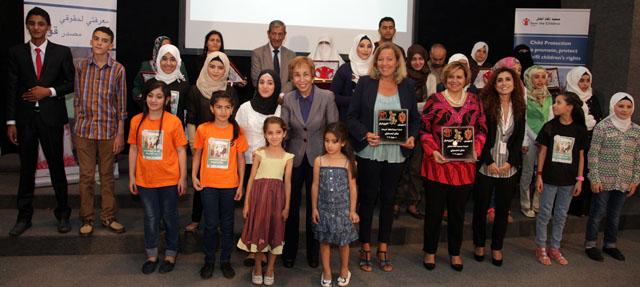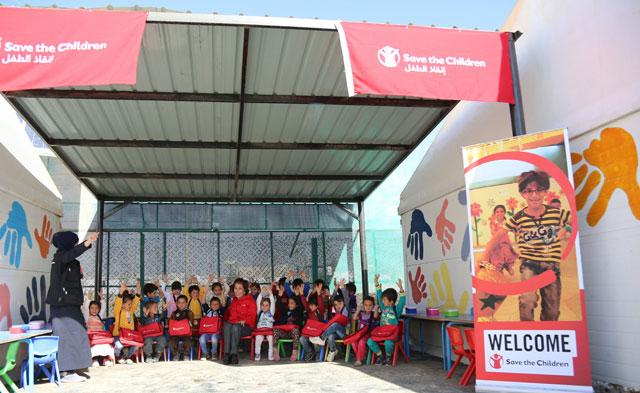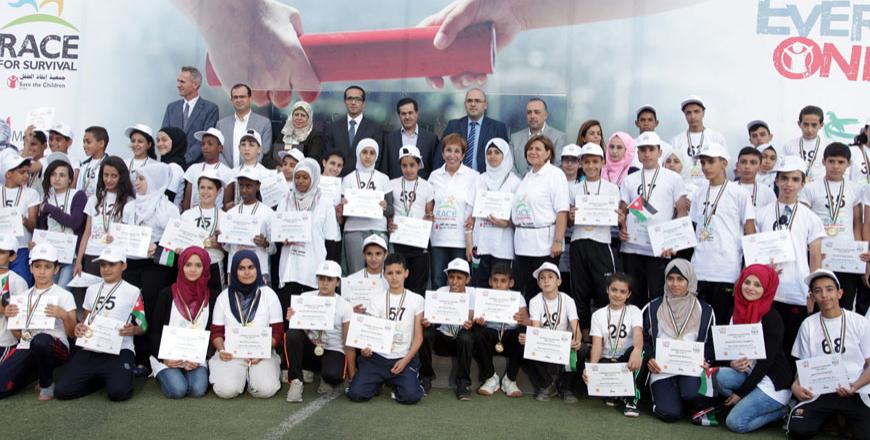You are here
Save the Children project under way to combat early marriage
By Laila Azzeh - Sep 08,2014 - Last updated at Sep 08,2014

AMMAN — Holistic efforts are under way to bring an end to early marriage in Jordan, a phenomenon that still exists despite its drastic impact on the overall well-being of children.
To that end, Save the Children Jordan (SCJ), with the support of the Norwegian embassy, launched the “Child Protection Programme with Emphasis on Early Marriage” last year, according to SCJ.
The initiative came as a direct response to a study conducted by Save the Child Norway on the early marriage phenomenon, especially in Palestinian refugee camps, and coincided with a study published by UNICEF on the same subject, SCJ CEO Manal Wazani said on Monday.
“The UNICEF study showed that early marriage in Jordan increased from 18 per cent of the total marriages in 2012 to 25 per cent in 2013, reaching 32 per cent during the first quarter of the year,” she noted at a ceremony to launch the third phase of the initiative.
According to the UNICEF study, these figures pertain to early marriage among Syrian refugees residing in Jordan, while the rates of underage marriage among Jordanians in general stood at 13.2 per cent in 2013, rising from a stable 12.6 per cent in 2011 and 2012.
Around 9,304 children, parents and societies have benefited from the SCJ project at Al Hussein Refugee Camp, Wihdat and Marka so far, while the third phase will cover Mafraq, Amman and Ramtha.
Under the initiative, experts conduct field surveys in local communities, then visit societies to sign agreements with them that entail preparing facilitators to teach children and families with the training booklets.
“I got to know my full rights as a child and speak out when they are violated. Early marriage is really bad for us,” one of the beneficiaries said in a documentary screened during the ceremony.
HRH Princess Basma, SCJ chairperson, commended SCJ and the Norwegian embassy’s efforts in defying stereotypes surrounding early marriage, such as its ability to mitigate the financial burden of the couple’s parents.
“Children should be protected from anything that affects their health, and mental and psychological development. They have a human right to play and learn,” the princess said.
Princess Basma honoured local societies and organisations involved in the project at the ceremony, during which children who participated in the programme performed a play on the aftermath of early marriage.
Deputising for the Norwegian ambassador, migration attaché Merete Munch said the project has had a life-changing impact on participants.
“They came to realise the negative consequences of early marriage on all parties involved,” she said, stressing that the road to combat the phenomenon is “still long”.
Munch noted the project also provided an opportunity for participants to have a “positive spillover” about their problems.
According to the UNICEF study, there has been no significant decline in the rates of child marriages registered in the Kingdom’s Sharia courts from 2005 to 2013.
The definition of 18 as the legal age for marriage in Jordan is undermined by an acceptance that special permission — dependent on the discretion of individual judges — may be given for children as young as 15 to marry.
Related Articles
AMMAN — Chairperson of Save the Children Jordan (SCJ), HRH Princess Basma on Tuesday visited programmes that support Syrian refugees living
AMMAN – HRH Princess Basma on Thursday called for more efforts to realise the Millennium Development Goals (MDGs) that seek to ensure the ri
The practice of early marriage shows no sign of abating in Jordan, according to a study issued by UNICEF on Wednesday













